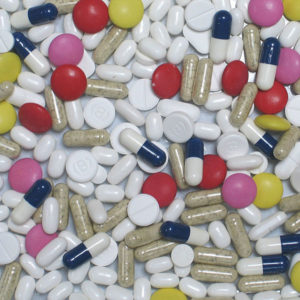Practical Aspects of Drug Discovery: At the Interface of Biology, Chemistry and Pharmacology (Cape Town, South Africa)
7–12 April 2019
University of Cape Town, South Africa
Learn about the theoretical, practical and organisational aspects of small molecule and natural product drug discovery.
Summary
In collaboration with the Wellcome Centre for Anti-Infectives Research (WCAIR), University of Dundee and the Drug Discovery and Development Centre (H3D), University of Cape Town, we are pleased to announce the first Overseas Practical Aspects of Drug Discovery course.
Increasingly scientists representing a variety of disciplines in leading research institutions, as well as small and medium-sized companies are leveraging their expertise to engage in early-stage drug discovery. Such drug discovery R&D requires the productive combination of multiple disciplines including biochemistry, medicinal and computational chemistry, natural products, pharmacokinetics, pharmacology and project management, the breadth of which can present organisational, knowledge and competence challenges for institutions and investigators.
This interactive, lecture- and discussion-based course will give scientists of all disciplines a broad introduction to the theoretical, practical and organisational aspects of small molecule and natural product drug discovery. Each topic-based lecture mixes presentation with discussion sessions and case histories to develop the key aspects of critical disciplines and activities. Additional discussion-based practical sessions will build on the lectures to illustrate the strategic planning of drug discovery programmes, including the development of target product profiles, compound progression criteria, scientific strategy and the need to work collaboratively. This course will focus on the need for drug discovery on the African continent and how these approaches can be applied in the African context and environment.
Target audience
The course is open to applicants from institutes based in Africa. The programme is aimed at researchers with a limited understanding of small molecule or natural product drug discovery, but with a background knowledge of any discipline related to drug discovery, including biology, chemistry, pharmacology, computational chemistry and informatics etc. Representatives from research institutions who want to expand upon their expertise in disease biology into early stage drug discovery and have an interest in the communicable Neglected Tropical Diseases (NTDs), TB, Malaria and HIV among other diseases. Applicants with an interest in treatments for any disease would benefit.
The course is free to attend and limited bursaries are available to cover travel and accommodation costs.
Programme
The programme will include lectures and discussions covering the following topics:
- Project management and organisation of multi-disciplinary projects
- Target discovery and validation
- Hit discovery options
- Phenotypic screening and mode of action elucidation
- Screening set assessment
- Screening cascades, assay development and quality control
- Data mining
- Introduction to pharmacokinetics
- Principles of compound optimisation and case histories
- In silico approaches to drug design
- Natural products – isolation, structure elucidation and optimisation
- Data packages required for out licensing and partnering
- An introduction to preclinical and clinical development
Learning outcomes
By the end of the course, participants should be able to:
- Describe the process of small molecule and natural product drug discovery
- Discuss the medicinal chemistry approach of modification to natural products in the drug discovery process
- Apply the principles of target assessment and validation to a potential drug target
- Classify the different approaches to hit discovery
- Discuss the positives and negatives of different approaches to drug discovery
- Define the basic principles of DMPK
- Assess the DMPK and toxicology challenges in lead optimisation and pre-clinical drug development
- Describe the uses of computational chemistry in the drug discovery process
- Discuss the basic medicinal chemistry principles and their impact on early development
- Describe the clinical and non-clinical stages of the drug discovery process
- Understand the mechanics of working with collaborators and funding agencies
- Apply key principles to your own research in an African setting
Instructors and speakers
Course instructors
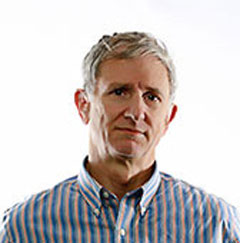
Greg Basarab
H3D, University of Cape Town, South Africa
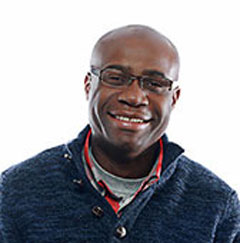
Kelly Chibale
H3D, University of Cape Town, South Africa

Ola Epemolu
WCAIR, University of Dundee, UK

John Igoli
University of Agriculture, Makurdi, Nigeria
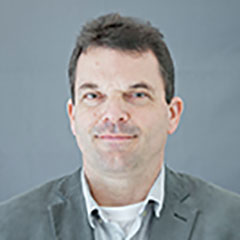
Rolf Müller
Helmholtz Institute, Germany

Alissa Myrick
H3D, University of Cape Town, South Africa
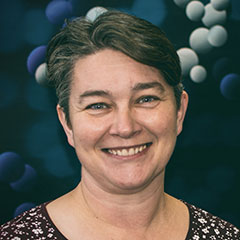
Sandra O'Neill
WCAIR, University of Dundee, UK
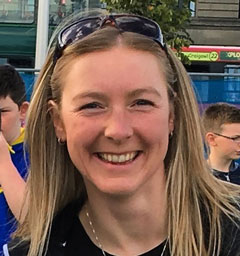
Lauren Webster
WCAIR, University of Dundee, UK
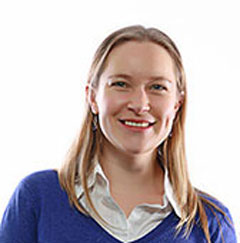
Susan Winks
H3D, University of Cape Town, South Africa
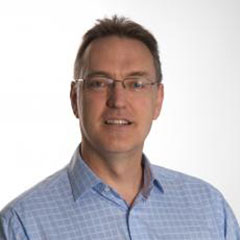
Paul Wyatt
WCAIR, University of Dundee, UK
Guest speakers

Dalu Mancama
CSIR, South Africa
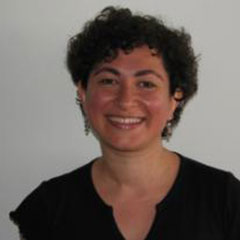
Ozlem Tastan Bishop
Rhodes University, South Africa
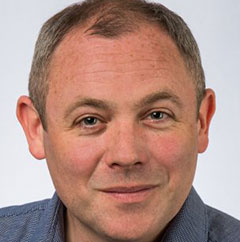
James Duffy
MMV, Geneva, Switzerland
How to apply
Target Audience
The course is open to applicants from institutes based in Africa. The programme is aimed at researchers with a limited understanding of small molecule or natural product drug discovery, but with a background knowledge of any discipline related to drug discovery, including biology, chemistry, pharmacology, computational chemistry and informatics etc. Representatives from research institutions who want to expand upon their expertise in disease biology into early stage drug discovery and have an interest in the communicable Neglected Tropical Diseases (NTDs), TB, Malaria and HIV among other diseases. Applicants with an interest in treatments for any disease would benefit.
Prerequisites
Applications are invited from academic or commercial backgrounds in relevant fields, e.g:
- new postdoctoral recruits to already established facilities
- postdoctoral grade researchers in small or medium sized companies
- senior investigators considering entering the field
- established investigators seeking further professional development
There are 25 places available and the course will be held in English.
How to Apply
Please complete the online application form. Places are limited and will be awarded on merit. If you have any problems with the online application process, please contact us.
Please note: Applications must be supported by a recommendation from a scientific or clinical sponsor (e.g. supervisor, line manager or head of department). A request for a supporting statement will be sent to your nominated sponsor automatically during the application process. Applicants must ensure that their sponsor provides this supporting statement by the application deadline. Applications without a supporting statement cannot be considered.
Cost
Cost
The course is subsidised by Wellcome Genome Campus Advanced Courses and Scientific Conferences and is free to attend.
Bursaries
A limited number of bursaries are available for each course. These are awarded on merit to cover travel, accommodation and sustenance. The maximum award for travel (economy class) will be £750. If you would like to apply for a bursary, please complete the bursary section of the online application form.
Bursaries can be applied for as part of the course application form. Applicants will be notified of a bursary award along with their place on the course, usually within one month of the application deadline. The decision of the selection committee is final.
Please note that both the applicant and sponsor are required to provide a justification for the bursary as part of the application.
Accommodation services phishing scam – please be vigilant. More information.
